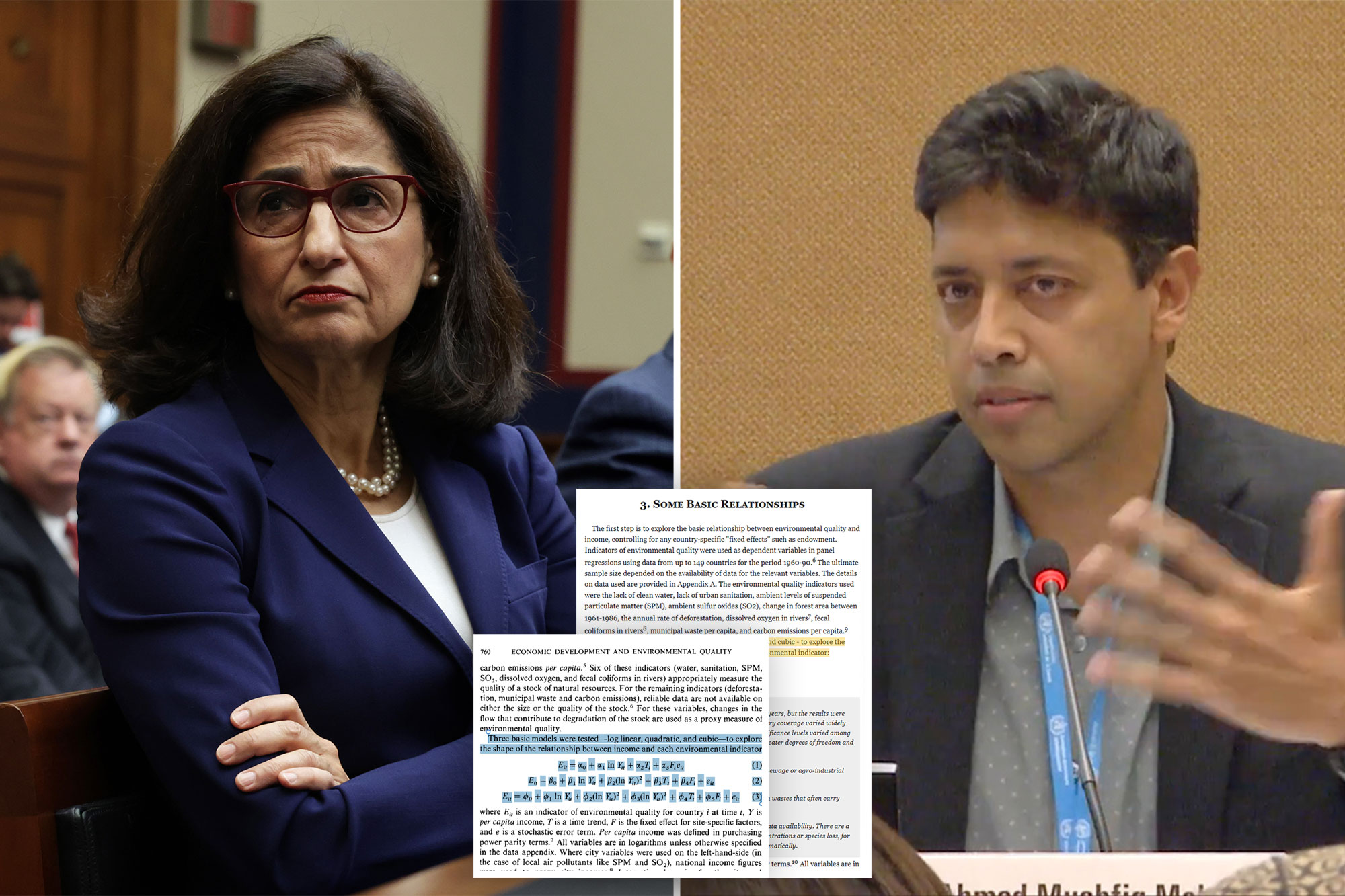
Embattled Columbia University president Nemat “Minouche” Shafik screwed a former underling out of credit on a research paper published 30 years ago, a Yale University professor claims.
Ahmed Mushfiq Mobarak posted the bombshell allegations in a blistering thread on X early Friday, juxtaposing images of a 1992 report Shafik co-authored for World Bank with researcher Sushenjit Bandyopadhyay, along with a journal published in Oxford Economic Papers two years later in which Bandyopadhyay’s name was removed.
Mobarak, an economics and management professor at Yale, told The Post the findings and research cited in both papers are pretty much equal.
“It got rewritten, but fundamentally it’s the same paper,” he alleged.
“We can’t get in the room and [learn] what sentences did he write and what sentences she wrote, but what we do know is his contribution was sufficient to warrant co-authorship [in 1992],” he added. “What is not common is for someone to be a co-author and then suddenly their name is taken off.”
Instead, Bandyopadhyay is only “thanked” in an acknowledgement section in the back of the 1994 published journal — which screams of “power asymmetry” considering Shafik was then Bandyopadhyay’s boss, alleged Mobarak.
Bandyopadhyay declined comment when asked whether he felt slighted.
However, Mobarak, also a former World Bank consultant and University of Maryland graduate, said he spoke to Bandyopadhyay about the issue and that Bandyopadhyay believes he should have been credited as a co-author in the second paper. The professor conceded Bandyopadhyay never said anything “negative” about the Columbia president.
“This [1994] paper is lifted almost entirely from a 1992 report coauthored with consultant not credited in the publication,” wrote Mobarak on X. “This is wholesale intellectual theft, not subtle plagiarism.”
At the time both papers were written, Shafik was a vice president for World Bank and Bandyopadhyay, a consultant who also attended the University of Maryland.
Mobarak’s allegations echo plagiarism accusations leveled against former Harvard University president Claudine Gay, who eventually resigned in disgrace in January.
Columbia University declined to comment.














